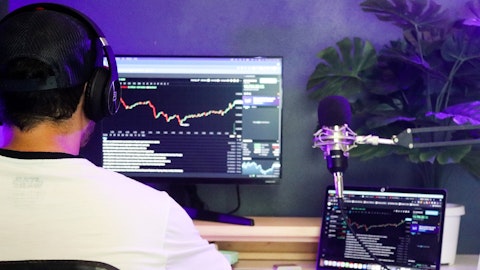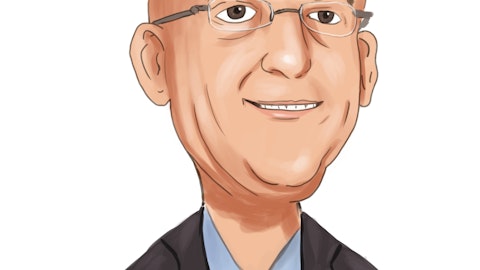RJ Tesi: And an interesting problem, Dan is since the Phase II is blinded, we actually won’t know if a patient has been a placebo patient or an active patient. So suddenly, they show up Day 1 on the OLE, right? They could be a de novo patient or they could be someone who’s already had six months of therapy. So it’s not like we’re going to know in the first month or two, what’s going on. We’re going to need some time to figure this out. But it — remember the three values or the three important elements of the trial of the OLE that CJ mentioned. One, it gives us that long-term safety data that we know the regulatory authorities, one. Two, it gives us the long-term efficacy data that we know the regulatory authorities were going to want.
And the third thing is its trade date, what I mean trial date rather. In other words, we’re trying to encourage clinical teams to enroll their patients. We know it’s competitive out there. One of the great advantages of the XPro trials being only six months is that even if you end up on the placebo trial, your progression rate is not going to be so catastrophic that you potentially can’t benefit from some other clinical trial. You don’t become un-enrollable, so to speak. And if you do participate in the trial, you’re guaranteed to get what we think is going to be a beneficial drug after the period of that trial, whether you’re on placebo or not. So we — the investigators have been very supportive of this strategy because at the end of the day, when you walk into a memory clinic now, they’ve got three or four or five trials that they can choose between to enroll their patients and they’re always trying to look out for the best wishes of their patients, and we think this puts us high on the list.
Daniel Carlson: Yeah. And then one last question, just — I’ve just looked briefly since your press release, but your PI and the INKmune prostate trial seems to be a pretty big deal. I’m just wondering what his motivation was to work with you guys on this?
RJ Tesi: Well, I’ll let you ask — I’ll let you — I don’t want to put words in his mouth, but this is, as you said, he’s a very experienced guy, clinical trialist. He has particular insight and expertise in immunotherapy. And I think he’s just — my sense is, he’s been frustrated that all of his other buddies in the cancer world, whether you’re lung cancer or melanoma docs, have all these interesting immunotherapy tools to use checkpoint inhibitors, ADCs, etcetera. And he doesn’t have anything, right? And he states that we’ve reached the limit, I think this is in his quote in the press release, we’ve reached the limit with what we can do with the effective therapies we have, and those are inhibitors, anti-androgen strategies and chemotherapy.
So he believes that the only way he’s going to progress is with an immunotherapy. And Mark, you heard Mark’s comments, Mark convinced him that what they really need is a therapy that targets NK cells, and he’s on board. So we’re pretty excited. He’s a very good guy. But he’s been there, done that, and he’s been involved in every immunotherapy failure in prostate cancer going forward because that’s what the field has been focused on. They’re trying to replicate the success they’ve had in breast cancer and in lung cancer with immunotherapy in prostate cancer. And so far, it’s been a disappointment.
Daniel Carlson: Thank you. Thanks for your answers guys and looking forward to a big year from you.
David Moss: Thanks, Dan.
Operator: There are no further questions at this time. I’d like to turn the floor back over to Dr. RJ Tesi for closing comments.
David Moss: I think you’re on mute RJ?


